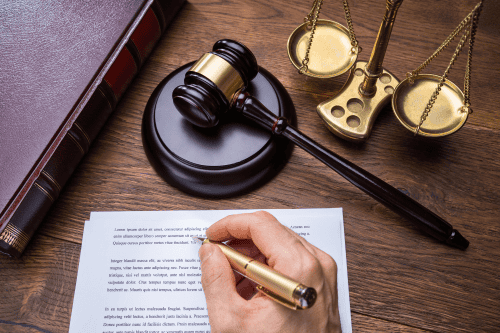New York Landlord Legal Compliance Update

- Free Members: $25
-
Pro Members:
$25
First Webinar Free* -
Pro Plus and
VIP Members: FREE
*Join as a Pro member and get your first webinar free
New York Landlord Legal Compliance Update
New Good Cause Eviction law (“GCEL”) limits evictions, requires lease renewals, and caps rent increases. This new form must be included in every lease, renewal lease, notice of rent increase or nonrenewal, 14-day rent demand and eviction petition. Join us to learn more about these legal updates so you can stay in compliance!
You will learn:
- What is the definition of “good cause” to evict ?
- Which NYC tenants are eligible for protection?:
- Which municipalities outside of NYC have adopted GCEL?
- Which housing accommodations are exempt from NY GCEL protection?
- When is a NY rent increase presumed to be unreasonable?
This webinar provides critical updates on New York landlord-tenant laws, focusing on the Good Cause Eviction Law and other recent changes. Learn how these laws impact your rental properties and what steps you need to take to stay compliant.
The presentation aims to provide informational content, not legal advice, due to the varying application of laws across different municipalities.
Chapter 1: Introduction
Overview: Attorneys Justin Friedman and Robert Friedman discuss recent changes in New York landlord-tenant laws.
Key Details:
- The webinar covers eviction laws, rent increase regulations, and other relevant topics.
- The presentation will primarily focus on New York laws, with a brief mention of upcoming California-specific webinars.
- Justin Friedman advises landlords on evictions daily and leads the litigation department.
- Robert Friedman brings 45 years of legal experience, specializing in landlord-tenant law, estate planning, and asset protection.
Chapter 2: Tenant Protection Act of 2019 – Key Reminders
Overview: A review of critical aspects of the Tenant Protection Act of 2019 that landlords still need to be aware of.
Key Details:
- Five-Day Rent Delinquency Letter
- Nonpayment Evictions
- Security Deposits
- Late Fees
- 30-60-90 Day Notice Rule
- New York Courts Website
Chapter 3: Good Cause Eviction Law
Overview: An in-depth look at the Good Cause Eviction Law, including its purpose, affected areas, and exceptions.
Key Details:
- Enacted in April 2024, this law limits evictions, caps rent increases, and requires lease renewals in qualifying properties.
- Currently in effect in all parts of New York City and several downstate and central New York cities.
- Rochester recently adopted this law, and other municipalities like Buffalo are considering it.
- Exceptions to the Law
- Good Cause for Eviction
Chapter 4: Erie County Eviction Process & Timelines
Overview: A discussion of the unique eviction process in Erie County, NY, and general timelines for evictions.
Key Details:
- Default Evictions: Even with a warrant granted on default, tenants have an opportunity to bring the matter back before the court, potentially delaying the process.
- Tenants are entitled to at least one adjournment of two weeks.
- The eviction process can take approximately two months from the first court date to the tenant vacating the property.
- Landlords must store the tenant's property for a reasonable amount of time (typically 30 days) after eviction.
Chapter 5: Q&A Session
Overview: Attorneys Justin and Robert answer questions from webinar attendees, clarifying various aspects of the new laws and providing practical advice.
Some questions answered include:
- Clarification on the definition of "small landlord" in different jurisdictions.
- Discussion on whether a duplex with two separate leases counts as two units.
- Guidance on how to handle situations where the 231c notice is incorrectly stated.
- Explanation of how the number of units outside of New York City affects the "small landlord" status.
- Advice on whether a tenant needs to acknowledge the 231c form and what to do if they refuse.
- Clarification on how much a landlord can annually raise the rent in Rochester.
- Discussion on whether landlords can refuse partial payments after a notice to vacate is issued.
- Guidance on how to handle LLC ownership and its impact on the "small landlord" exception.
- Confirmation that rent-stabilized buildings are exempt from the GCEL.
Chapter 6: Additional Lease Riders
Overview: Attorney Robert Friedman provides a quick overview of 12 additional lease riders that landlords should consider including in their leases.
Key Details:
- Bed Bug Addendum: Recommended, includes tenant affirmations, inspection requirements, and prohibitions on used furniture.
- Confession of Judgment Affidavit: Authorizes the landlord to enter a judgment for a sum due without going to court.
- Crime-Free/Drug-Free Rider: Allows landlords to evict tenants involved in violent or drug-related criminal activity, regardless of the tenant's knowledge.
- Flood History Disclosure: Required, discloses prior flood damage and whether the property is in a FEMA-designated floodplain.
- Lead-Based Paint Hazard Disclosure: Required for pre-1978 housing, includes a pamphlet and disclosure of any records.
- Move-In/Move-Out Checklist: Essential for documenting damages and complying with the Tenant Protection Act of 2019.
- Personal Guarantees: Recommended for tenants who don't meet income qualifications.
- Pet Registration Form: Required for tenants with pets, includes pet details, license information, and vet contact.
- Service Animal/Emotional Support Animal (ESA) Rider: Addresses common mistakes landlords make regarding service animals and ESAs.
- Smoking Policy: Recommended, especially in cities and counties that require it, prohibits smoking in certain areas.
- Sprinkler Disclosure Law: Required, discloses whether there are sprinklers and the date they were last inspected.
- Reasonable Modifications and Accommodations Disclosure: Required, informs tenants of their right to request modifications and accommodations for disabilities.





 Accessibility
Accessibility